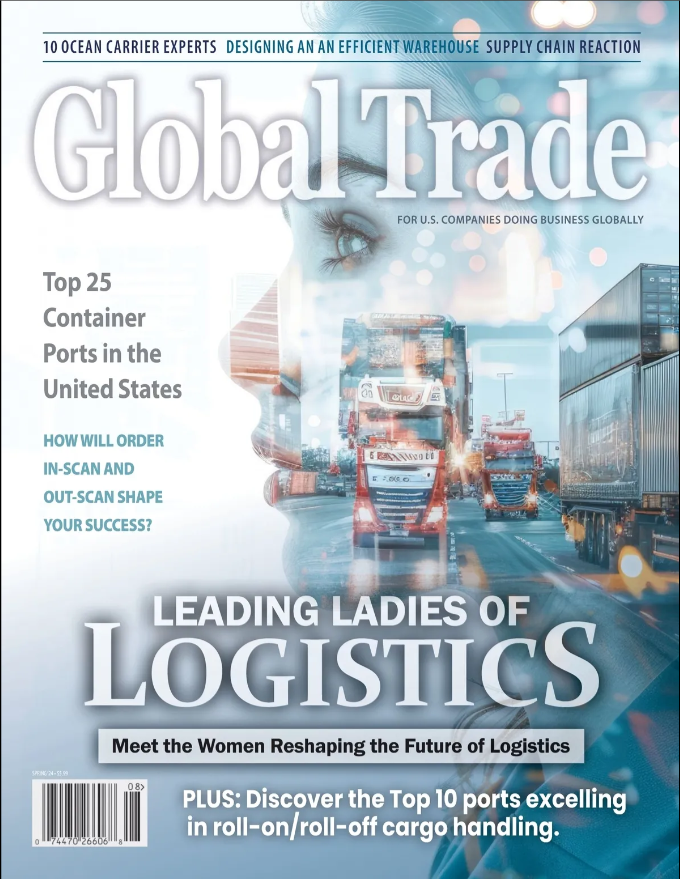Resiliency, Wherever You Can Get It: Uncertainty In Global Supply Chains Is Going To Stay
Citi has launched its latest Global Perspectives & Solutions (Citi GPS) report titled “Supply Chain Finance: Uncertainty in Global Supply Chains Is Going to Stay.” Its findings indicate that in an environment of stabilizing trade flows and cooling goods demand, disruption remains top of mind for businesses reliant on global supply chains.
Read also: Geopolitics, not Economics, is Front and Center for Global Supply Chains
The report, which follows 2021’s report titled “The Complicated Road Back to ‘Normal,’” draws insight from Citi Research’s propriety Global Supply Chain Pressure Index, trade flows and survey responses from multinational corporations and their suppliers globally.
As Citi’s premier thought-leadership product, Citi GPS is designed to help readers navigate the most demanding challenges and greatest opportunities of the 21st century. Citi accesses the best elements of a global conversation with senior Citi senior professionals, academics and corporate leaders to anticipate themes and trends in today’s fast-changing and interconnected world.
The Citi Global Supply Chain Pressure Index, outlined in the report, continued to ease on the back of a slowdown in global consumer’s demand for goods. Core goods inflation is expected to alleviate as heightened supply chain pressure has been a key driver of price pressure. The report cautions that while the decrease in demand is an important driver of loosening supply chain pressures, these developments are also a sign of mounting recessionary risks across countries and globally.
Citi Treasury and Trade Solutions (TTS) enables clients’ success by providing an integrated suite of innovative and tailored cash management and trade finance services to multinational corporations, financial institutions and public sector organizations across the globe. Based on the foundation of the industry’s largest proprietary network with banking licenses in over 90 countries and globally integrated technology platforms, TTS continues to lead the way in offering one of the industry’s most comprehensive range of digitally enabled treasury, trade and liquidity management solutions.
By analyzing the $4 trillion of average daily payment flow that TTS processes, the report finds that flows have largely stabilized after multiple disruptions in 2021 and early 2022. It is against this backdrop of stabilization, that Natural Resources and Clean Energy Transition (NRCET) trade flows grew 65% through the first three quarters of 2023 as energy prices soared globally.
“The pandemic and then the war in Ukraine demonstrated the fragility of supply chains. Many companies and customers experienced the pain of those disruptions and are now looking for resiliency wherever they can get it. While reshoring and nearshoring may seem like the next steps, buyers and suppliers alike indicate that the higher priority is resiliency or redundancy deeper into the supply chain,” notes Jane Fraser, CEO of Citi in her forward to the report.
Citi and its research partner surveyed 2,327 global corporates for its Supplier & Large Corporate Survey as part of this report. This survey garnered powerful insights into the challenges facing companies large and small around the world, from which five themes emerged:
- Rising prices and rising interest rates have had impact as corporates take steps to boost financial supply chain resilience
- Corporates and their suppliers want to strengthen relationships and broaden their supplier base to mitigate further disruption
- Pandemic disruption has given way to geopolitical tension as the primary threat to supply chain funding stability
- Despite economic headwinds, respondents remain optimistic about the prospect for export growth
- ESG remains an area of focus, but lack of clarity has impeded meaningful progress.
Chris Cox, global head of Trade and Working Capital Solutions at Citi said: “Given the impact from global events businesses have re-evaluated supply chain strategies. Notably, resiliency and continuity are taking center stage on sourcing through the production cycle. Another developing trend is the shift from ‘Just in time’ to ‘Just in case.’ Buyers are now building-in more resilience by purchasing earlier and holding more inventory. As a result, financing the end-to-end supply chain remains top priority.”
He continued: “How this trend plays out long term remains to be seen. Buyers, however, are focused on ensuring their suppliers have access to better and stable working capital solutions. Businesses are also accelerating the digitalization of supply chains. Digitalization enables ease of monitoring and management throughout the chain, enabling the robustness for any future disruptions.”
The digital copy of the report is available at tinyurl.com/ms64jvbt.
Citi is a preeminent banking partner for institutions with cross-border needs, a global leader in wealth management and a valued personal bank in its home market of the United States. Citi does business in more than 160 countries and jurisdictions, providing corporations, governments, investors, institutions and individuals with a broad range of financial products and services.
Additional information may be found at citigroup.com X: @Citi; YouTube: youtube.com/citi; Blog: blog.citgroup.com; Facebook: facebook.com/citi; and LinkedIn: linkedin.com/company/citi.





Leave a Reply